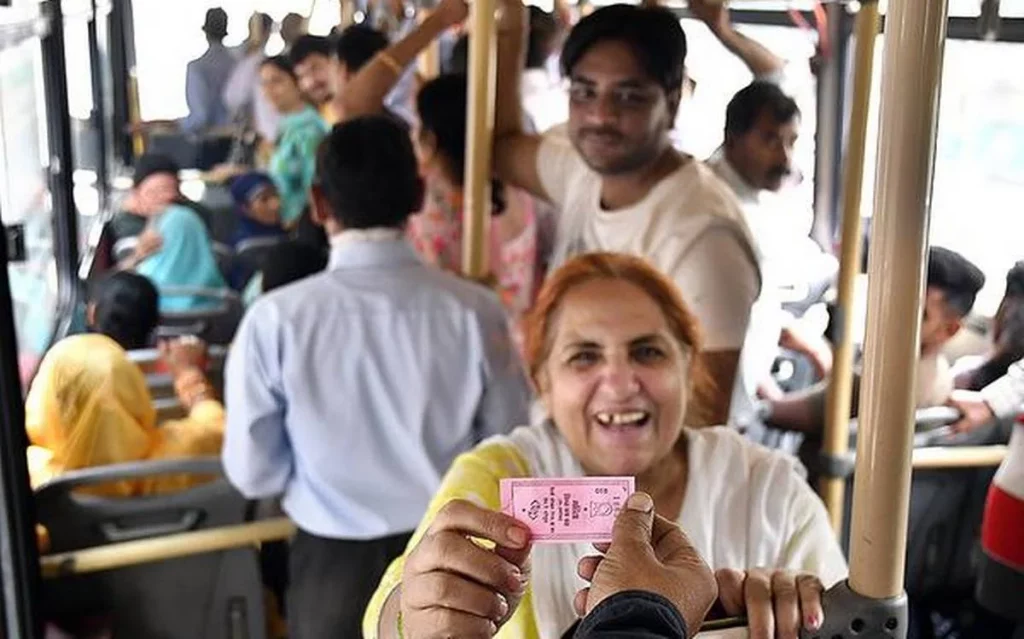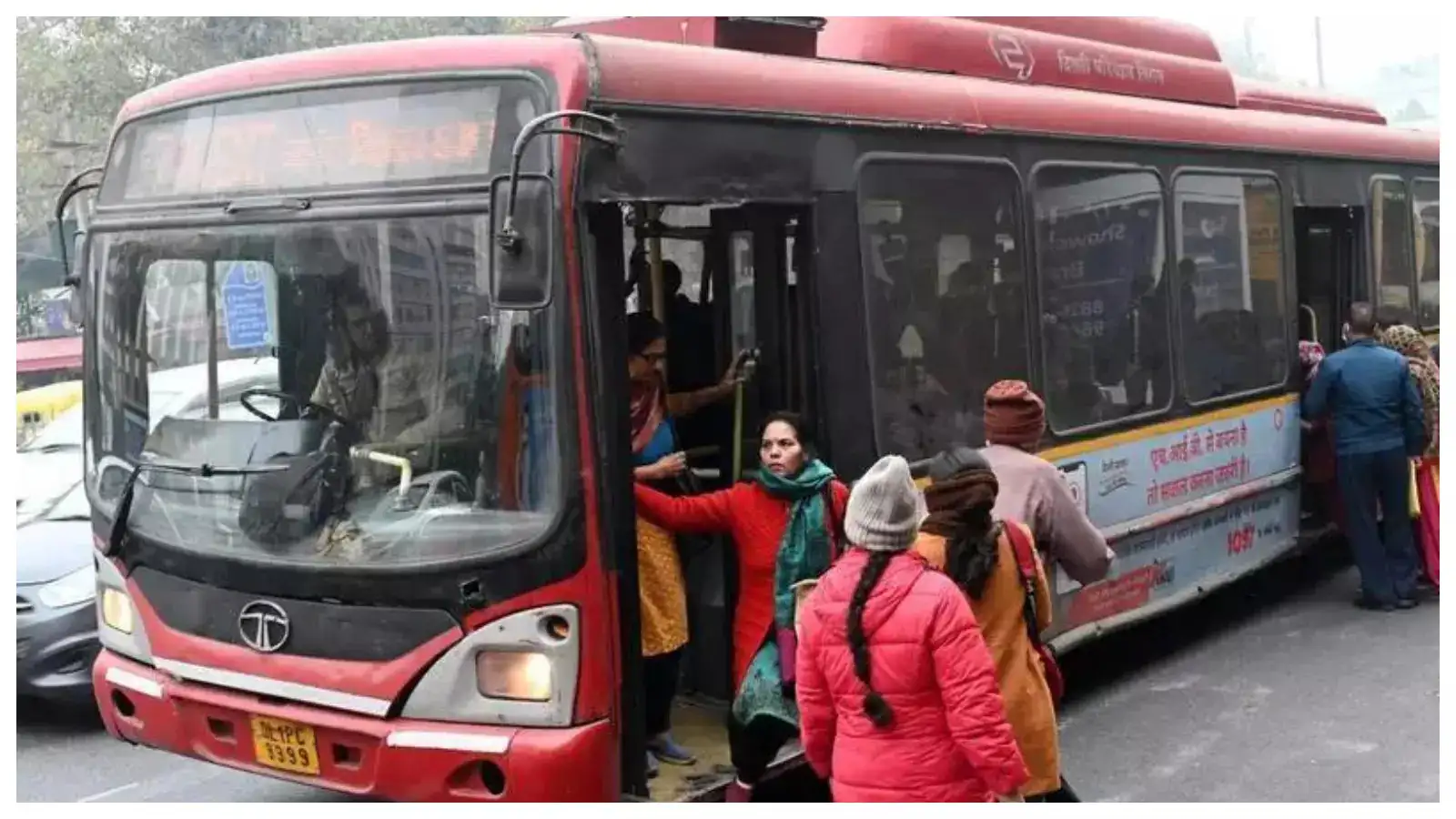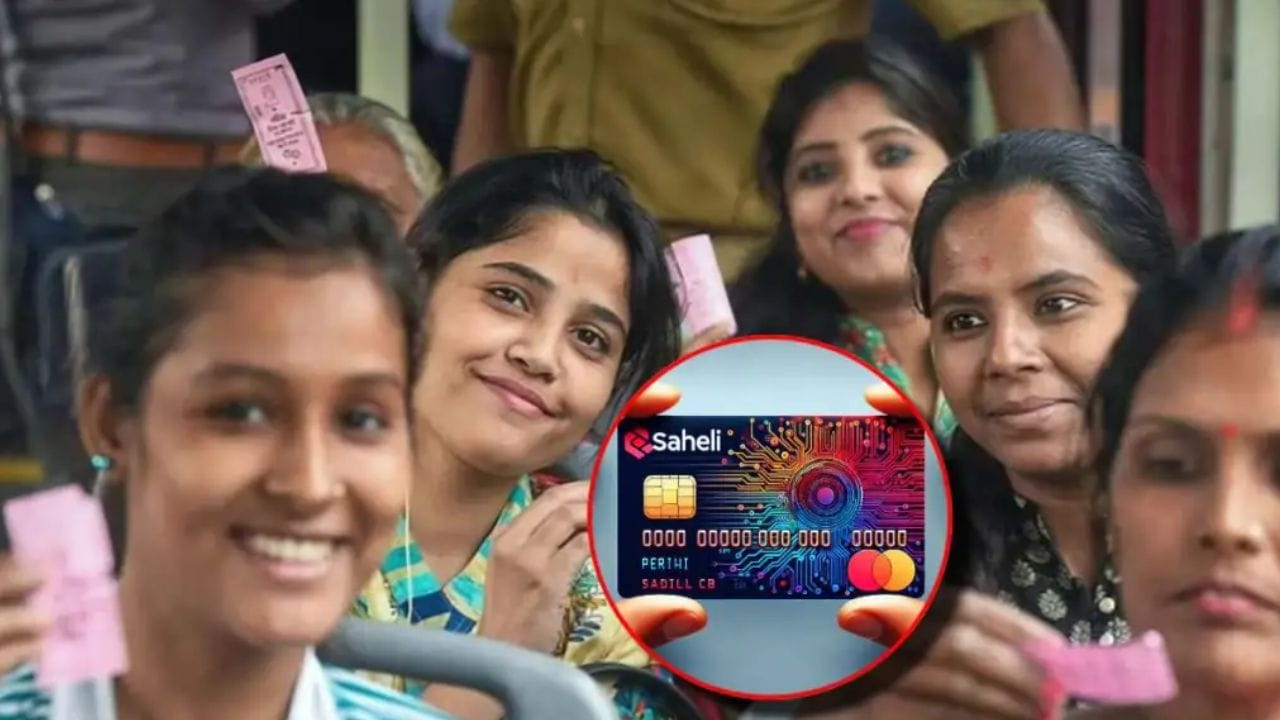Delhi’s new Saheli Smart Card promises to modernise free bus travel for women with sleek technology and tighter verification. But for thousands without formal proof of residency, this upgrade could mean losing a vital lifeline, forcing hard choices between daily mobility, work, and basic living expenses. On a humid August morning at Sarai Kale Khan bus depot, Anjali, 29, waits at her usual stop with a cloth bag slung over her shoulder. For the past five years, her commute to work — two buses each way — has been free. The pink ticket, introduced by the Delhi government in 2019, required nothing more than showing up and boarding a bus. It was meant to encourage women to travel more, work more, and claim the city’s streets as their own.
Now, Anjali isn’t sure how much longer she will be able to afford her rides. From August 15, the ‘pink ticket’ has been replaced by the Saheli Smart Card — a plastic pass that will allow free travel only to women and transgender residents of Delhi who can prove their address and complete a digital registration. For Anjali, who rents a single room in a shared tenement without a formal agreement, that proof does not exist. ‘They want electricity bills or Aadhaar linked to my Delhi address. ‘I have neither,’ she says. ‘I will have to start paying for every ride. That means cutting food or skipping buses altogether.’

The Delhi government calls it a progressive, tech-enabled reform. Transport Minister Dr. Pankaj Kumar Singh says the Saheli Card will streamline subsidies, eliminate ticket fraud, and integrate with the National Common Mobility Card system for seamless travel on buses, the Metro, and more in the future. Officials also argue it will prevent misuse — under the pink ticket system, they claim, some commuters took free tickets and never boarded.
The change marks a decisive shift: from a universal benefit, available instantly to any woman in Delhi, to a conditional one, restricted to those who fit the state’s eligibility checklist. And for the thousands of women who live, study, or work here without official proof of residency, that shift is not a minor inconvenience—it’s a potential loss of independence.
Yet, the change marks a decisive shift: from a universal benefit, available instantly to any woman in Delhi, to a conditional one, restricted to those who fit the state’s eligibility checklist. And for the thousands of women who live, study, or work here without official proof of residency, that shift is not a minor inconvenience—it’s a potential loss of independence.
The numbers behind the change
The pink ticket scheme has been one of the most visible gender-focused policies in Delhi’s recent history. According to the Delhi government’s 2024-25 Economic Survey, the number of pink tickets issued was 177 million in 2020-21, rising sharply to 400 million in 2022-23. By March 2024, more than 1.53 billion rides had been availed since the scheme’s launch in 2019, with women making up 46% of bus passengers—up from 25% in 2020-21. Former finance minister Atishi, during last year’s budget speech, noted that approximately 1.1 million women travel for free on buses every single day.
But the system was expensive. The Delhi government paid the Delhi Transport Corporation (DTC) and cluster bus operators over ₹300 crore annually to cover the cost. Officials also alleged revenue leakages: some conductors reportedly issued pink tickets without passengers, and some riders collected multiple tickets.

The Saheli Smart Card is pitched as the fix. Each card will be linked to a commuter’s name, photograph, and Delhi address. There will be two versions: a simple non-KYC card for bus travel and a fully KYC-verified card that can also store money for Metro fares. Registration will be online, though offline centres are promised.
The women left out
For middle-class women with stable housing and easy access to documents, the Saheli Card may be a minor procedural step — a form to fill, a trip to the bank, perhaps an afternoon spent queuing at a registration centre. But for many others, it is a wall. At a small café in Jamia Nagar, Seema Khan, 19, flips open her spiral-bound notebook between sips of sweet, milky chai. A first-year sociology student at Jamia Millia Islamia, she travels daily from Faridabad, where her parents live, to Delhi, where she shares a cramped two-room flat with two friends. Her Aadhaar card is still linked to her family’s Haryana address.
Delhi’s buses are lifelines for domestic migrants: domestic helpers from Jharkhand, garment workers from Uttar Pradesh, nursing students from Bihar, software trainees from Punjab, and media interns from Kerala. Many pay rent, pay taxes, and spend more of their lives in Delhi than in their home states — but without proof of Delhi residency, the Saheli Card will not open its gates for them.
‘They say I’m not a Delhi resident, so I don’t qualify,’ Khan says, her voice low but edged with frustration. ‘The pink ticket meant I could take buses without counting my coins. I could stay late in the library, join evening study groups, or visit friends across the city. Now, I will think twice before leaving campus, especially when every ride means spending money I don’t have.’ Her case is far from unusual. Delhi’s buses are lifelines for domestic migrants: domestic helpers from Jharkhand, garment workers from Uttar Pradesh, nursing students from Bihar, software trainees from Punjab, and media interns from Kerala. Many pay rent, pay taxes, and spend more of their lives in Delhi than in their home states — but without proof of Delhi residency, the Saheli Card will not open its gates for them.
Sabina Bano, 34, from Ranchi, has been working as a domestic helper in South Extension for eight years. She lives in a servant quarter attached to her employer’s home but has no rent agreement, no Delhi voter ID, and no utility bill in her name. ‘I go to four houses a day, changing buses three times. With the pink ticket, I could take any route. Now, I’m told I will have to pay for every ride unless I show proof of address. But what proof? I sleep in a small room behind my madam’s house. There is no paper for that. I earn ₹10,000 a month; bus fare will eat a big part of it.’ Even professionals who appear financially secure are caught in the net. Priya Verma, 28, a marketing executive from Lucknow, has been working in Delhi for over three years. She rents a flat in Lajpat Nagar with two colleagues. Her Aadhaar remains linked to her parental home in Uttar Pradesh, and her landlord refuses to register the rent agreement.
‘It’s absurd,’ she says. ‘I pay my taxes here, I shop here, and I’ve built my career here, but in the eyes of this scheme, I am invisible. I don’t mind a smart card. I mind a smart card that says, ‘Prove you belong to Delhi, or pay.’ Delhi runs on people from outside. Does the government think buses are only for those born here?’ Then there are the students who come from far-off conflict zones, who already face the challenge of distance from home. Shazia Mir, 21, from Sopore in Jammu & Kashmir, is in her final year of law school at Delhi University. She rents a paying guest room in Mukherjee Nagar, surrounded by fellow students from all over the country.

‘I came here to study because my state doesn’t have the same opportunities,’ she says. ‘The pink ticket meant I could travel across the city without worrying about the cost. Without it, my monthly bus fares will be over ₹1,200. That’s money I could have used for books, meals, or even sending something home to my family. Every extra rupee on transport means cutting back somewhere else. It feels like the city is making it harder for us to survive here.’
‘Mobility is everything for women, especially when you’re far from home,’ she says. ‘The day you start thinking, “Can I afford to go?”, is the day your world becomes smaller.’ These stories share a common thread: the Saheli Card’s promise of empowerment collides with the lived reality of Delhi’s floating population, many of whom keep the city running but lack the documents to prove their right to belong. For them, the shift from a simple, paper, pink ticket to a digitally verified, residency-linked card is not an upgrade — it’s a quiet narrowing of the city’s open doors.
Conductors in the middle
For bus conductors, the policy shift is also significant. On route 405, Ramesh, a DTC conductor with 14 years of service, remembers the early days of the pink ticket. ‘It was simple. Any woman boarded, and I tore a pink ticket. Yes, there were misuses, but mostly it worked. People smiled when you handed them the ticket.’ Under the new system, he will need to check cards, verify names, and ensure each tap is recorded. ‘It’s more work. And when someone doesn’t have the card, there will be arguments. ‘Who will handle that?’ he asks. His colleague Poonam, one of a handful of women conductors in her depot, worries about exclusion. ‘Not everyone can stand in queues or go online to register. Many women who travel every day will be left out. That’s not empowerment; it’s restriction.’
A choice between inclusion and control
Across India, other states have taken a looser approach to women’s mobility. In Karnataka, for instance, women can travel free on buses anywhere in the state with minimal documentation—a voter ID or a Below Poverty Line card suffices, regardless of whether they are permanent residents. Tamil Nadu offers discounted passes to students from anywhere in the country who are enrolled in its institutions. Delhi, by contrast, is drawing a sharper line. The Saheli Card is presented as a sleek, tap-and-go system, integrated with national mobility infrastructure, promising to reduce corruption and make data collection easier. But it also acts as an instrument of control — determining who can ride and who cannot, based on administrative proof rather than lived reality. For women like Anjali and Seema, the card is not a gateway but a gate.
The Saheli Card is presented as a sleek, tap-and-go system, integrated with national mobility infrastructure, promising to reduce corruption and make data collection easier. But it also acts as an instrument of control — determining who can ride and who cannot, based on administrative proof rather than lived reality. For women like Anjali and Seema, the card is not a gateway but a gate.
The government argues that the pink ticket was never meant to be permanent and that restricting benefits to residents ensures fairness and prevents revenue leakage. Critics counter that this fiscal logic ignores the wider social and economic benefits of keeping women—especially those in low-income and precarious jobs—mobile. They see the move as a quiet rollback of one of the most tangible gender equity measures in India’s capital.
For now, the pink ticket will continue alongside the Saheli Card during the transition. But officials have made it clear: eventually, free rides will be tied entirely to the card. Activists are urging the state to widen eligibility — accepting college ID cards for students, employer letters for workers, or even self-declaration forms for migrants. Others suggest separating the residency requirement from the free travel benefit, keeping the technology without the exclusion.
About the author(s)
Masrat Nabi is a journalist whose work focuses on politics, gender, culture, and social issues in India.






Delhi’s Transport Minister is Pankaj Kumar Singh and not Kailash Gehlot.